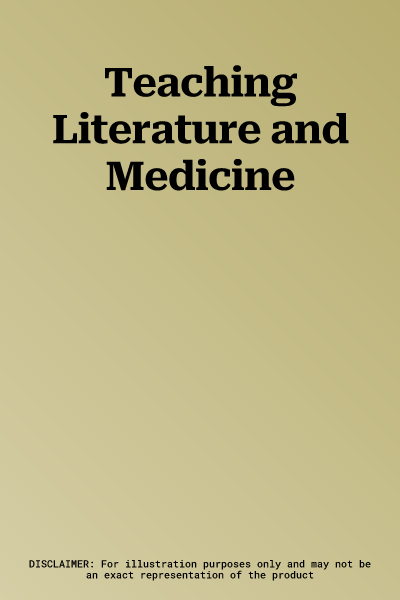Both the actualities and the metaphorical possibilities of illness and
medicine abound in literature: from the presence of tuberculosis in
Franz Kafka's fiction or childbed fever in Mary Shelley's Frankenstein
to disease in Thomas Mann's Death in Venice or in Harold Pinter's A
Kind of Alaska; from the stories of Anton Chekhov and of William Carlos
Williams, both doctors, to the poetry of nurses derived from their
contrasting experiences. These are just a few examples of the
cross-pollination between literature and medicine.
It is no surprise, then, that courses in literature and medicine
flourish in undergraduate curricula, medical schools, and
continuing-education programs throughout the United States and Canada.
This volume, in the MLA series Options for Teaching, presents a variety
of approaches to the subject. It is intended both for literary scholars
and for physicians who teach literature and medicine or who are
interested in enriching their courses in either discipline by
introducing interdisciplinary dimensions.
The thirty-four essays in Teaching Literature and Medicine describe
model courses; deal with specific texts, authors, and genres; list
readings widely taught in literature and medicine courses; discuss the
value of texts in both medical education and the practice of medicine;
and provide bibliographic resources, including works in the history of
medicine from classical antiquity.

